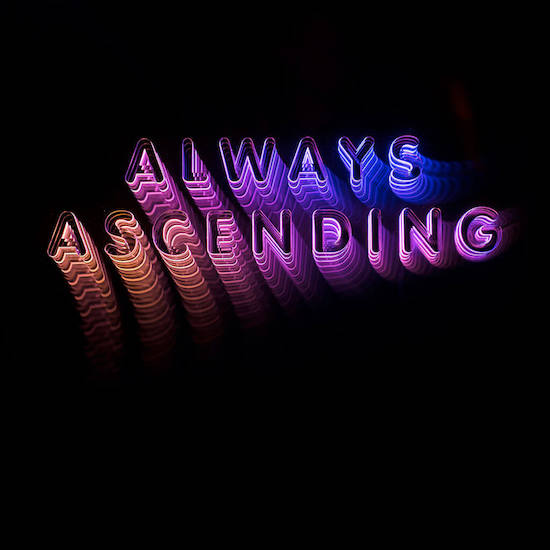It has now been a decade and a half since Franz Ferdinand’s debut record, an LP that, however unfashionable the post-new rock revolution aesthetic of guitar-swamped indie might sound now, stands the test of time. Among the swathe of identikit indie rockers that surrounded them there was a certain something else underpinning Alex Kapranos and co – a sense of intelligent wit and knowing manipulation of imagery that made them much, much more interesting than their peers.
True, the only competitors of their size in the field of hit-machine mainstream rock consisted essentially of The Kaiser Chiefs and Razorlight, but Franz Ferdinand’s blend of Dadaist quirk and European cool was masterly in its own right. Their debut was my first record too: I received it as a tenth birthday present, and though it would be a few years until I explored the likes of Orange Juice, Devo, Gang Of Four, Kraftwerk and the other bands they were drawing on, their entry level amalgamation into brilliant, accessible pop was the perfect gateway.
In the time since, they gradually let slip this abiding aura of magpie-ing cool. Their second record You Could Have It So Much Better saw their taut and tight indie-pop chops slacken into an enjoyable, looser follow-up, but the peaks on 2009’s stiff electro-reinvention Tonight… were thinner on the ground. 2013’s return to guitars Right Thoughts, Right Words, Right Action was solid but lacked character, and their ostentatious Sparks collaboration FFS had lashings of character but little solidity.
Over the course of their career they’ve shown many different faces. They can still lay on the sharp, modish style, they’re still capable of shaping solid, tightly wound pop and they’ve still got that knowing, slick sense of humour that set them apart from the landfill in 2003; the problem is combining all three into the rounded, varied and honed piece that was their debut. In short, 15 years on from their first record, their career has been marked by a maddening sense of imbalance, and we’re still waiting on a record that sees them reclaim their status as a band who can boast all in one package.
Enter, then, Always Ascending. It is by no means perfect, and at points misjudged, but for the first time since the early 2000s we have a record that runs the gamut of what makes Franz Ferdinand great: it is an album full of character, craft and flair all at once.
The first four tracks boast all these qualities and more. The title track starts this tremendous run, lurching from a simmering, subtle crescendo into an almighty pump of synth that heralds the dawn of a glorious, launching cut of choppy, crusading groove. The brilliantly weird and rhythmically twisted ‘Lazy Boy’ follows, a muted and off-centre beat gilded in intermittent stabs of that trademark choppy guitar that bursts in and out of a tumbling chorus, then flows unbroken into the slick, suave ‘Paper Cages’, where Kapranos’ vocals sound as wickedly debonair as they have in years, and the tight, finely coiled ‘Finally’ closes that opening run.
In terms of songwriting, Franz Ferdinand are on form, but more importantly this opening run sounds full of life. They’ve always remained capable of this kind of craft, and have had spirited moments of intent throughout their career, but rarely have they sounded this consistently determined. The record’s climax is similar, in particular the penultimate ‘Feel The Love Go’, which ploughs a slick furrow between steely, pulsing dance and lush blasting pop, while ‘Slow Don’t Kill Me Slow’ closes the album with a sombre, beautiful drift, a late showing for the tenderness that often went overlooked on the band’s earlier work.
It is only in the middle that Always Ascending lets a certain wonkiness get the better of it. ‘The Academy Award’ is a downright bizarre ballad – “The Academy Award for good times goes to you” croons Kapranos over off-kilter strings and synths that sweep and sway with a strangely sickly opulence – while the scatterbrained ‘Huck And Jim’ pinballs from a sinister low groove to barmy proto-rap to a bombastic glam-rock launch of a chorus about hanging out with the titular Twain characters and telling them all about the NHS and the DSS. Neither quite works, but this daft, delirious middle section is immensely enjoyable to listen to, which in many ways surmises what’s so great about Always Ascending; even when they miss the target, Franz Ferdinand are fun again.



